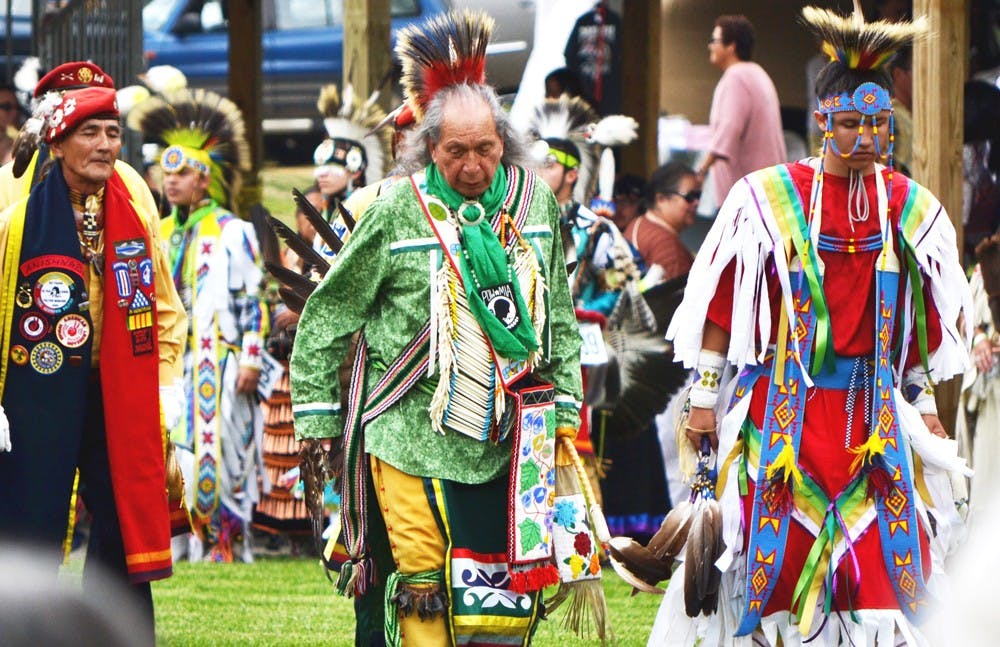EDITORIAL: Remember the good, and the bad

Another Columbus Day was celebrated in America on Monday, but Mount Pleasant took that day to rightfully recognize Native Americans.
Mount Pleasant was one of several municipalities to move away from the traditional holiday since the trend began in the 1990s in Berkeley, California. The movement is a necessary and frankly overdue rejection of positive myths and celebrations of Christopher Columbus.
The fact that the Vikings first set foot in America no longer fires up contention, but one debate about the seafarer's reputation persists. Though many maintain Columbus opened a new land of opportunity for oppressed masses of Europe, history courses like those offered by Central Michigan University reveal him as a slaughterer of indigenous people and a contributing force to the slave trade.
The truth might lie somewhere in between, but Columbus' arrival in the New World marks where we as a country began to form an identity. His legacy is still an important part of our national story, and some are still reluctant to sever ties wit ha holiday that has roots back to 1792.
President Barack Obama acknowledge the issue best in his Oct. 12 proclamation. In it, he said "Columbus's adventure reflected the insatiable thirst for exploration that continues to drive us as a people" and that his legacy is embodied in the spirit of our nation.
Obama later acknowledged the disease, devastation and violence introduced to indigenous populations, albeit briefly. This the issue with discrediting America's creation myth. It can be difficult to leverage the positive influences of Columbus' pioneering legacy with the darker cost it took to create, but it is a disservice to Native Americans and citizens to forget the pain caused by Europeans' arrival.
Opposition to the federal holiday did not gain much traction until the latter half of the 20th century. This opposition has been spearheaded by indigenous groups, though it has recently began to spread into the mainstream.
Some, such as the American Indian Movement, have argued that the responsibility of governments and their citizens for acts of genocide against Native Americans are masked by positive Columbus myths and celebrations. These critics argue that a positive legacy of Columbus has been used to legitimize their actions, and it is this misuse of history that must be exposed.
Mount Pleasant and the Anishinaabe people of Saginaw Chippewa Indian Tribe have continued to demonstrate that positive change can be achieved through cooperative efforts.
The first proclamation of Indigenous Peoples Day in Mount Pleasant was in October 2014. Hopefully this was the start of many more across the country.
At least nine cities celebrated the holiday for the first time this year, including Albuquerque, Portland, St. Paul, Minnesota, Olympia, Washington and Alpena.






